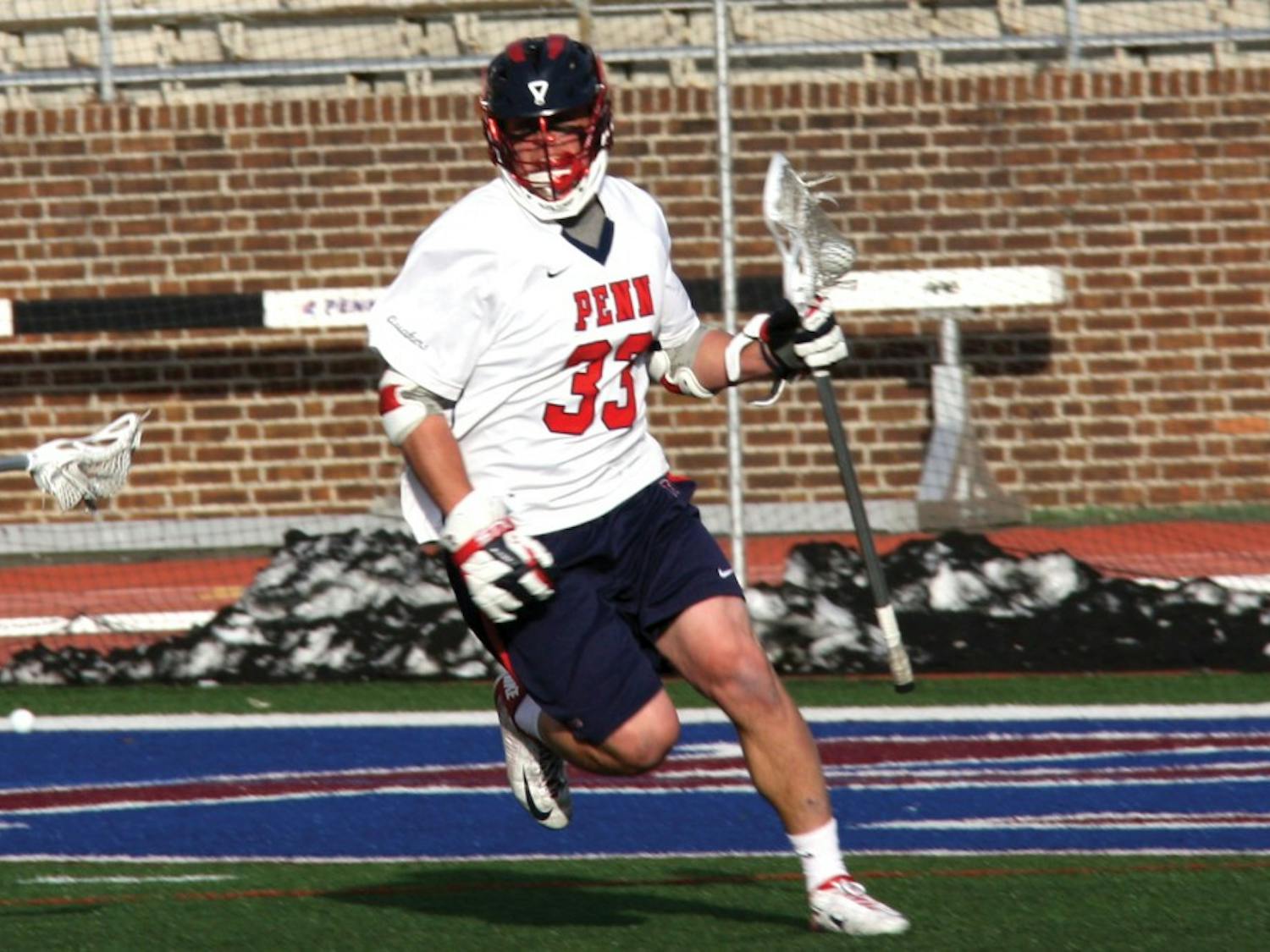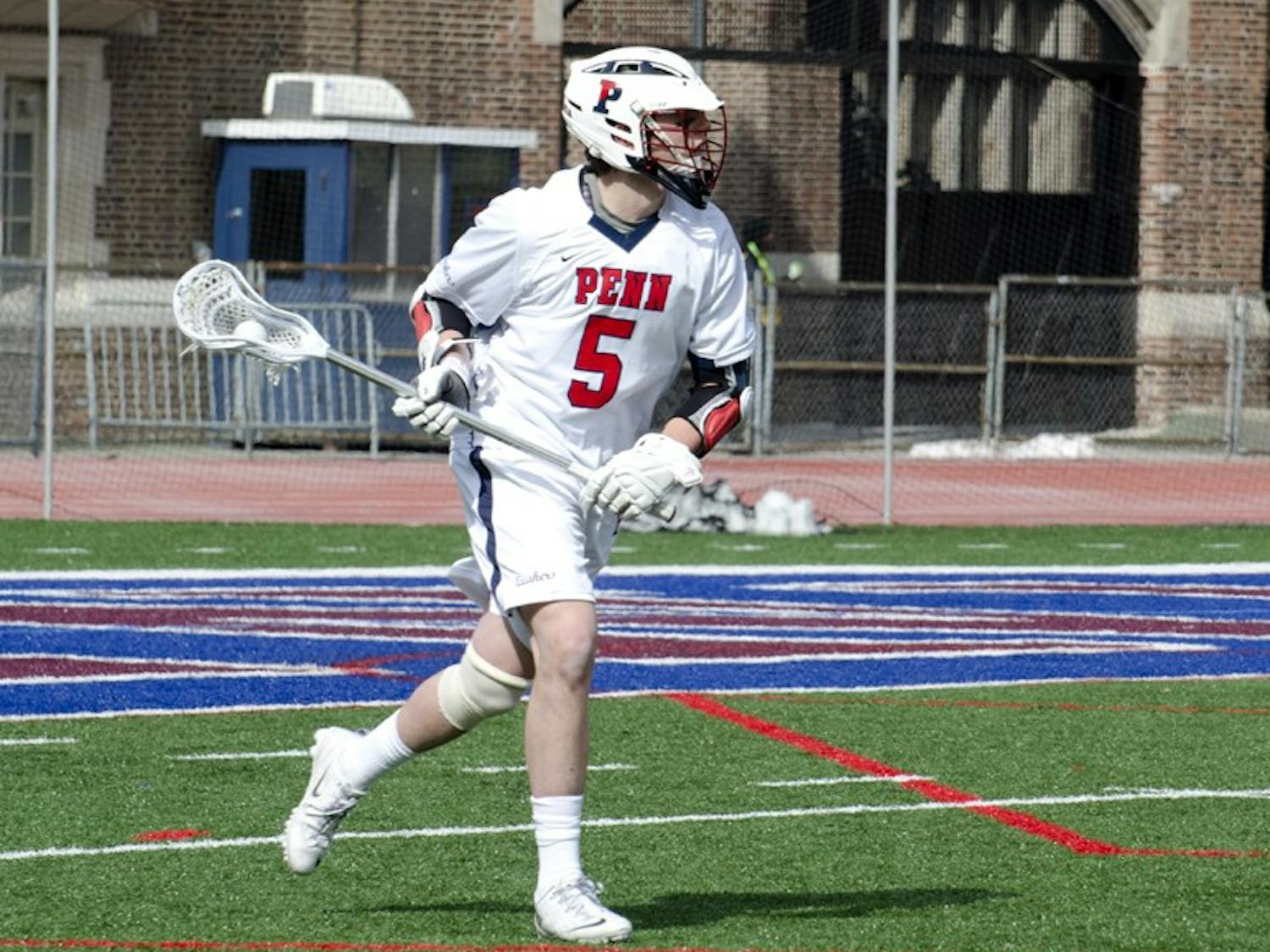The men’s lacrosse team has already shown that it can hang with Duke and Maryland — two powerhouse programs from the Atlantic Coast Conference.
So it seems logical that the Quakers should be able to have their way with an Ivy League foe such as Princeton tomorrow.
After all, in nearly all high-profile men’s varsity sports, the Ivy League simply cannot compete with teams from major athletic conferences like the ACC.
But this reality has one major exception: lacrosse. Penn enters tonight’s contest as underdogs to the No. 5 Tigers.
The Ivy League has made its presence felt among the men’s college lacrosse elite, and it doesn’t seem to be leaving anytime soon.
“Our guys know that we can play with and beat anyone, regardless of conference or location,” Penn coach Mike Murphy said.
The Tigers, along with Cornell, Yale and Brown are among the top 20 teams in the nation.
Princeton has won six national championships, though its last was in 2001, when it went 14-1 overall. Cornell reached the finals of the 16 team NCAA championship tournament last year.
The Ancient Eight’s success on the national stage may come as a surprise to some. The League’s emphasis on academics over athletics has led to strict rules preventing universities from offering athletic scholarships to top recruits.
But while the ramifications of this policy have greatly affected the talent levels of Ivy football, basketball and baseball, lacrosse has somehow managed to buck this trend.
One reason for this deviation is the nature of the athletes that gravitate toward the sport.
Men’s lacrosse has traditionally been popular along the East Coast and in New England. Many top players got their starts at private schools where they began playing at the competitive level when they were kids.
For these athletes, the academic experience and close proximity to home that the Ivy League has to offer certainly holds more weight in their college selection process.
Yet, as lacrosse has become more popular, its recruiting base has expanded as well. This makes it even more remarkable that the Ivy League has remained one of the toughest conferences in the nation despite its recruiting limitations.
But the main area in which the Ivy League has excelled is in its emphasis on cultivating cohesive programs and keeping top coaches within the conference.
And men’s lacrosse should be a model for success that other Ivy League sports should seek to replicate.
While it may not be realistic to expect the basketball or football team to compete with major conferences that spend millions of dollars on their programs, a focus on strong coaching should be a top priority.
Keeping a nationally relevant lacrosse program at Penn, or any Ivy, should have major consequences, especially as the marquee sports struggle to compete with big-name teams. Lacrosse remains a viable sport for students to rally behind as they watch their Quakers compete, win and maybe even dance.
LAUREN PLOTNICK is a sophomore economics major from Potomac, Md., and is Sports Editor of The Daily Pennsylvanian. She can be contacted at plotnick@dailypennsylvanian.com.








